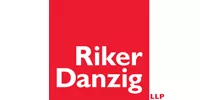The Department of Health and Human Services ("HHS") Office of Inspector General ("OIG") recently released a final rule (88 FR 42820) for information blocking penalties and subsequently proposed a rule (88 FR 74947) to establish disincentives for healthcare providers found by OIG to have committed information blocking.
The final rule does not impose new information-blocking provisions, but establishes civil monetary penalties ("CMPs") for certain actors up to $1 million per violation pursuant to the 21st Century Cures Act for "any practice that is likely to interfere with, prevent, or materially discourage access, exchange, or use of electronic health information ("EHI"). Penalties may be imposed on developers of certified health information technology ("IT"), health information exchanges ("HIEs"), and health information networks ("HINs").
OIG will prioritize investigating conduct that: "(1) resulted in, is causing, or had the potential to cause patient harm; (2) significantly impacted a provider's ability to care for patients; (3) was of long duration; (4) caused financial loss to Federal health care programs, or other government or private entities; or (5) was performed with actual knowledge." OIG also emphasized that because the definition of a violation uses the word "practice," each discrete act will count as a separate violation to prevent larger organizations from consuming the cost of a single violation and continuing to engage in information blocking.
As mentioned above, HHS proposed separate rulemaking to establish appropriate disincentives for healthcare providers who knowingly and unreasonably interfere with access, exchange or use of EHI unless a regulatory exception applies. HHS proposes the following disincentives for healthcare providers that OIG determined to have committed information blocking and will refer its determination to the appropriate agency:
- An eligible hospital or critical access hospital ("CAH") under the Medicare Promoting Interoperability Program would not meet the requirements as a meaningful electronic health record ("EHR") user during the applicable EHR reporting period. This would cause a loss of 75% of the annual market basket increase and pay would be reduced by 100% of reasonable costs for CAHs.
- Under the Promoting Interoperability performance category of the Merit-based Incentive Payment System ("MIPS"), physicians and medical groups would not meet the requirements of a meaningful user of certified EHR technology in a performance period and would receive a score of zero. This category is typically 25% of the total annual MIPS score.
- Accountable Care Organizations ("ACOs") would be ineligible to participate in the Medicare Shared Savings Program for at least one year and may result in individual healthcare providers being removed from an ACO or prevented from joining an ACO in the future.
The content of this article is intended to provide a general guide to the subject matter. Specialist advice should be sought about your specific circumstances.




